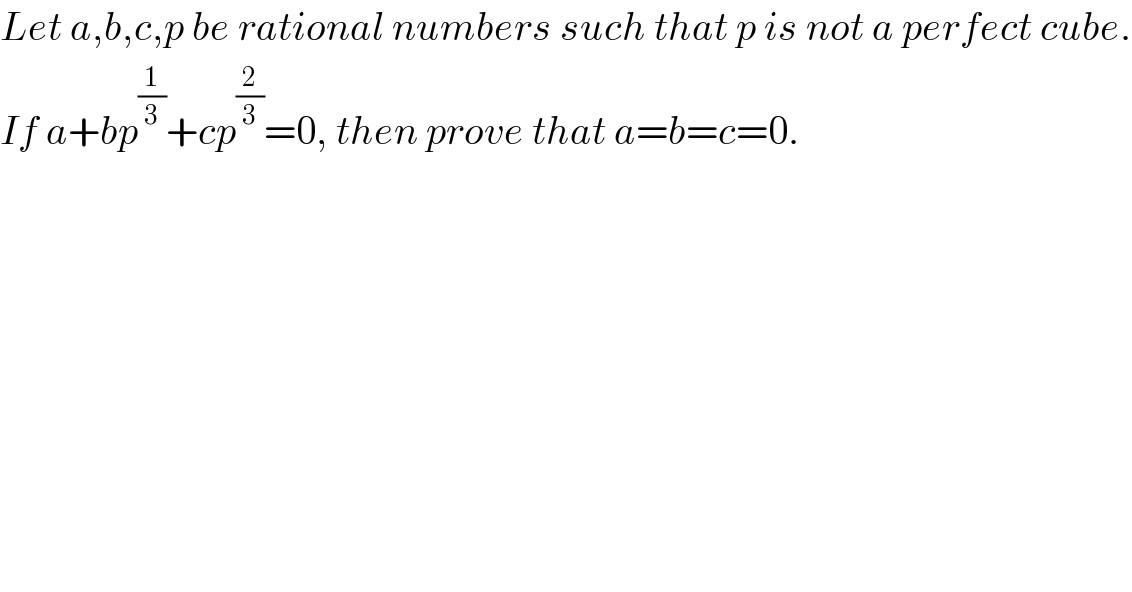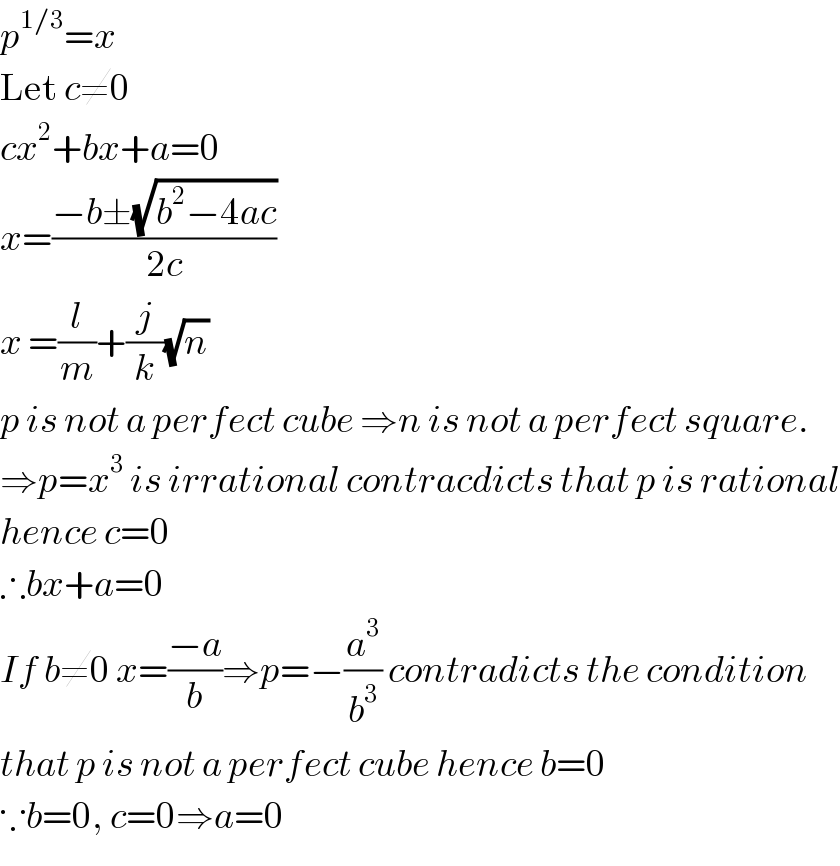
Question Number 1083 by Vishal last updated on 08/Jun/15

$${Let}\:{a},{b},{c},{p}\:{be}\:{rational}\:{numbers}\:{such}\:{that}\:{p}\:{is}\:{not}\:{a}\:{perfect}\:{cube}. \\ $$$${If}\:{a}+{bp}^{\frac{\mathrm{1}}{\mathrm{3}}} +{cp}^{\frac{\mathrm{2}}{\mathrm{3}}} =\mathrm{0},\:{then}\:{prove}\:{that}\:{a}={b}={c}=\mathrm{0}. \\ $$
Answered by prakash jain last updated on 08/Jun/15

$${p}^{\mathrm{1}/\mathrm{3}} ={x} \\ $$$$\mathrm{Let}\:{c}\neq\mathrm{0} \\ $$$${cx}^{\mathrm{2}} +{bx}+{a}=\mathrm{0} \\ $$$${x}=\frac{−{b}\pm\sqrt{{b}^{\mathrm{2}} −\mathrm{4}{ac}}}{\mathrm{2}{c}} \\ $$$${x}\:=\frac{{l}}{{m}}+\frac{{j}}{{k}}\sqrt{{n}} \\ $$$${p}\:{is}\:{not}\:{a}\:{perfect}\:{cube}\:\Rightarrow{n}\:{is}\:{not}\:{a}\:{perfect}\:{square}. \\ $$$$\Rightarrow{p}={x}^{\mathrm{3}} \:{is}\:{irrational}\:{contracdicts}\:{that}\:{p}\:{is}\:{rational} \\ $$$${hence}\:{c}=\mathrm{0} \\ $$$$\therefore{bx}+{a}=\mathrm{0} \\ $$$${If}\:{b}\neq\mathrm{0}\:{x}=\frac{−{a}}{{b}}\Rightarrow{p}=−\frac{{a}^{\mathrm{3}} }{{b}^{\mathrm{3}} }\:{contradicts}\:{the}\:{condition} \\ $$$${that}\:{p}\:{is}\:{not}\:{a}\:{perfect}\:{cube}\:{hence}\:{b}=\mathrm{0} \\ $$$$\because{b}=\mathrm{0},\:{c}=\mathrm{0}\Rightarrow{a}=\mathrm{0} \\ $$
